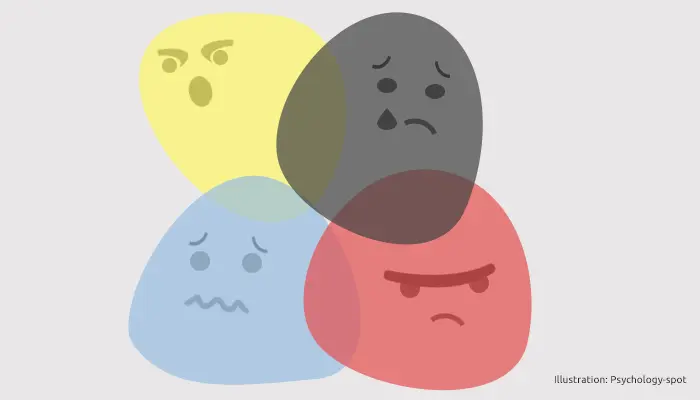
We believe that life should be fair. We believe that “good” people deserve good things and that “bad” people should be punished. We believe that if we do good works, the universe is obliged to give them back to us. We believe that there is a universal justice that gives everyone what deserves.
Without a doubt, life would be infinitely better if things were fair. It would be great if we could always get what we work for, or if the universe would reward our good deeds in some way. Unfortunately, life is not fair. And the sooner we assume it, the better is.
When the sense of justice turns into a magical thought
Magical thinking is characteristic of young children, but adults are not immune to that too. Magical thinking occurs when we make illogical attributions of causality without empirical evidence to support them, such as when we believe that our ideas or expectations may have direct consequences in the external world.
Our belief that the world is fair can easily transmute into magical thinking. For example, a study conducted at the Fisher College of Business found that when we are regualr customers of a business, we believe that we are more likely than others to receive an award in that business. This phenomenon, known as “lucky loyalty”, is based on the idea that we deserve a reward for our loyalty. It is a magical thought because it does not take into account the statistical probabilities.
That same belief is what leads us to invest in karma. In another experiment conducted at the University of Virginia, psychologists appreciated that at a job fair, people who were led to believe that the job search process was out of their control, offered to donate more money to a charity not related to job givers, compared to those who were led to believe that finding a job was up to them.
Later, job seekers who were led to believe their search was out of their control, were more optimistic about their job prospects when they gave money to charity than those who did not. That means that deep down they believed the universe would reward their good deed. Of course, being optimistic is not a negative thing, but sitting and waiting for the world to reward us is not a guarantee of good results.
Thinking that life should be fair comforts us, but it also has a dark side
We all have a deep-seated sense of justice that can be wronged in many ways. While it’s important to strive to create a fairer and more equitable playing field in life, there are times when that sensitivity doesn’t help much in the long run. So sometimes it is valuable to hold on to our sense of justice, but sometimes we must be mature enough to give up the belief that life should be fair.
The belief that the world should be a fair and equitable place gives us confidence and security. It supports our psychological balance. In fact, among the survivors of the 2008 Sichuan earthquake in which nearly 90,000 people died, those who lost family and friends were more likely to believe that life is unfair. However, those who continued to believe that the world was fair suffered less anxiety and depression, as showed by a study conducted at Peking University.
However, believing that life is fair has also a darker side. Albert Ellis, for example, was convinced that there are three monsters that prevent us from moving forward: “I have to do it well, you have to treat me well and the world should be easy.” This psychologist was convinced that the belief that life should be fair actually becomes an obstacle that generates unhappiness.
In fact, this belief can even lead us to be more insensitive, biased and unfair. A study conducted at Purdue University revealed that people who believe in universal justice are less likely to hire a candidate who has been fired. That’s because they think there must be a reason, that that candidate has been, in some way, punished for his bad behavior or inefficiency. Obviously, this is not always the case.
Unrealistic expectations condemn us to frustration
When we believe that the others should behave in a kind manner or that we should not encounter obstacles in our way, we are actually feeding unrealistic expectations. Sooner rather than later, reality will make us see that it is not like that, that things do not work that way and that sometimes life is unfair.
Then we will get frustrated. As young children, we will feel confused, aggrieved, and disoriented, wondering what has happened. We cannot make sense of a chaotic world without apparent justice and order in which bad things happen to good people and vice versa.
At that point we can become extremely disappointed, sad, or angry. However, the truth is that these feelings are usually not useful to rectify an unfair situation. Rather the opposite. It is likely that on more than one occasion these emotions have made the situation worse, because they cloud our rational mind and prevent us from finding assertive strategies to deal with what is happening.
In fact, there are people who can carry that pain, disappointment and anger for years, which will end up embittering their life completely. These people cling to their hurts and wrongs, becoming eternal victims of the injustices of life. They go around the world lamenting: “Life is unfair to me!” In those cases, obviously, the sense of justice does not help us. Rather, it becomes a source of distress.
Accepting that life is unfair and move on
Albert Ellis noted that “Even injustice has positive aspects. It challenges us to be as happy as we can be in an unfair world.” Being happy, feeling fulfilled and complete when the world is going well and rewards us has no merit. The real merit consists in developing the psychological tools that allow us to maintain inner peace in the midst of the storm, when the world is extremely unfair.
When bad things happen to us, we can either waste all of our energy complaining about how unfair life is, or we can accept that obviousness and move on. If the universe has not kept track of our good deeds, we can do nothing but accept it.
Ellis explained that “Reality is not so much what happens to us, but rather what we think about the events that create the reality that we experience. That means that each of us creates the reality in which he lives”. We have enormous power to build thoughts, feelings and actions that can help us live in a more balanced way or, conversely, that lead to self-destructive behaviors.
Accepting that life is not fair does not mean allowing everyone to step over us or violate our rights. We must also be able to set limits by following our sense of justice and right. We just have to be careful that that sense of justice does not become a double-edged sword, because we can easily lose perspective and fight a battle that is lost beforehand or poison ourselves with the bitterness of grievance.
The notion of what is fair is seductive, but we must be pragmatic. We will find it easier to assertively deal with a grievance when we accept the “apparent” unfairness in life. We can believe that the courts were created to protect us and to dispense justice. That’s fine. But we must also be aware that sometimes the justice system can be quite unfair.
Sometimes we just have to let go of that desire to find meaning in everything, an order behind the chaos that explains what we refuse to accept: that bad things happen to “good” people and good things happen to “bad” people.
In short, we need to understand that stubbornly insisting on the belief that life is unfair to us will inevitably deepen our pain or anger and hinder us in the grievance, preventing us from moving forward.
Sources:
Walker, R. et. Al. (2014) Lucky Loyalty: The Effect of Consumer Effort on Predictions of Randomly Determined Marketing Outcomes. Journal of Consumer Research; 41(4): 1065–1077.
Risen, J. L. et. Al. (2012) Investing in Karma: When Wanting Promotes Helping. Psychological Science; 23(8): 923-930.
Xie, X. et. Al. (2011) Belief in a Just World When Encountering the 5/12 Wenchuan Earthquake. Environment and Behavior; 43(4): 1-21.



